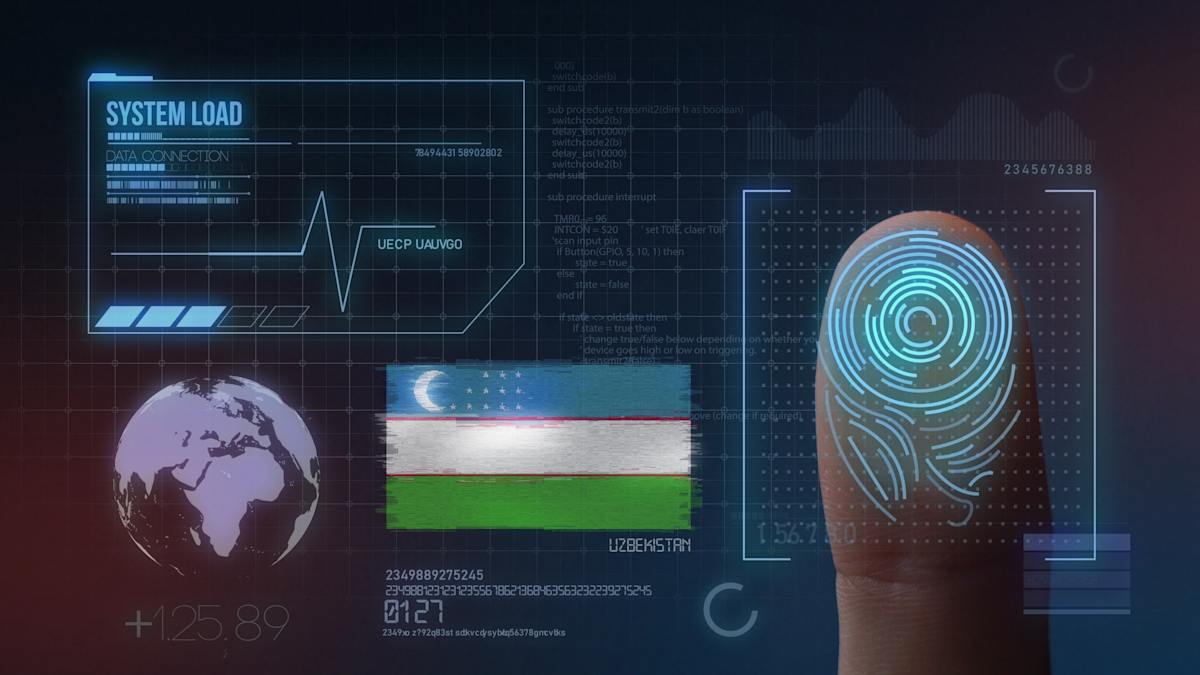Uzbekistan has announced the launch of a new digital identity verification for air travel, removing the necessity for physical identification documents on domestic flights while increasing fears of government surveillance.
Uzbekistan is ramping up its efforts to enhance national ID systems with an increase in the use of digitalization. Digital IDs for [1] air travel represent a significant advancement in Uzbekistan's initiative to incorporate digital identity technology into everyday life. Although this new aviation measure is being introduced, [2] digital IDs have already been utilized in various sectors since 2024. Government regulations permit electronic documents to be used in place of traditional physical ones at banks, notary offices, government agencies, and railway stations. Officials have confirmed that digital IDs presented through official applications are legally equivalent to their physical counterparts, and institutions are prohibited from requesting paper originals when a digital version is available.
As of July 2025, [3] the MyGov app is the only platform fully operational for these digital services, while the Social Card app is still in beta testing for Android users, with an iOS version expected to launch later this year. The current digital system supports national e-ID cards, biometric passports, and driver's licenses, with plans to include additional documents such as marriage and birth certificates in upcoming phases. Travelers wishing to utilize digital identification for domestic flights in Uzbekistan [4] are required to log into their individual accounts via the MyGov app or the Social Card app before checking in. Uzbekistan Airports has clarified that only active, in-app documents will be considered valid forms of ID any screenshots, scans, photos, or printed copies will not be accepted.
The Uzbekistan government [5] is also engaging in talks with Azerbaijan regarding the mutual recognition of biometric ID cards for cross-border travel, indicating a growing regional focus on creating interoperable digital identity solutions. In a notable development, Shavkat Mirziyoyev who [6] is the President of Uzbekistan, has proposed an initiative claiming it would establish mutual recognition of ID cards among the Central Asian nations. He presented [7] this idea during his address at the Consultative Meeting of Central Asian Heads of State held in Astana. “In order to expand tourist exchange, we propose to study the issue of mutual recognition of national ID cards and the development of mass tourism products on the principle of One tour the whole region,” said Mirziyoyev.
Organizations such as the International Air Transport Association or IATA have been calling [8] on governments and airlines to expedite the implementation of digital ID standards claiming it would improve security and streamline the processing of passengers. “As part of this effort, IATA’s One ID initiative promotes globally interoperable digital identity standards, enabling passengers to verify their travel documents before departure and move through the airport using biometric recognition instead of physical documents. One ID works in harmony with ICAO’s Digital Travel Credential ensuring security and efficiency while maintaining privacy and compliance with global regulations,” said the IATA in a press release.
Uzbekistan positions its digital identity initiative as a step towards technological advancement. However, independent analysts warn that such digital ID systems may considerably enhance government surveillance, especially in nations where political freedoms are restricted. According to the COMESA Business Council or CBC, The rollout of digital ID systems faces significant challenges [9] as stated in their article titled The Role of Digital ID Solutions in Enhancing Financial Inclusion and Security, “In countries with weak data protection laws or limited cybersecurity infrastructure, the risk of data breaches or misuse is significant. Moreover, there’s the question of who controls this data. If digital ID solutions are centralised and government-controlled, there’s potential for surveillance and privacy infringement. These concerns must be addressed through robust legal frameworks and technological safeguards to ensure that digital ID systems enhance, rather than undermine, individual rights,” said the CBC.
